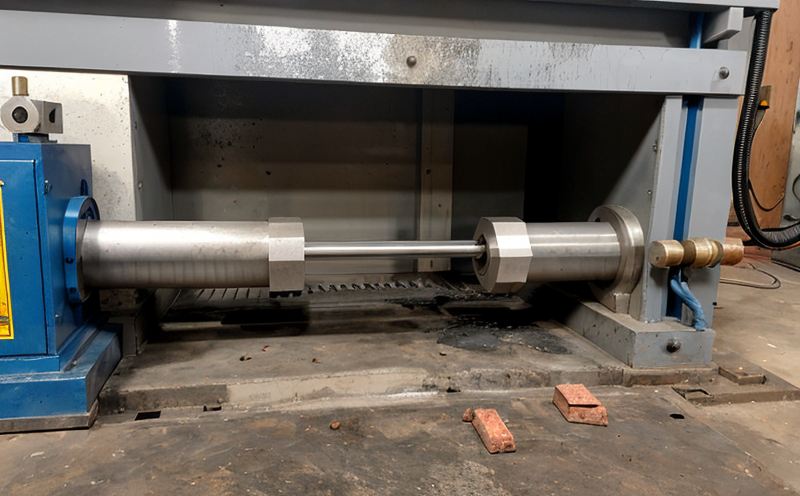ISO 13802 Instrumented Impact Testing of Plastics
The ISO 13802 standard specifies a method for performing instrumented impact tests on plastics to determine their notched impact strength. This testing procedure is crucial in industries where the durability and safety of plastic components are paramount, such as automotive, aerospace, and consumer goods sectors.
Instrumented impact testing provides valuable insights into how materials perform under dynamic loading conditions, which can be critical for understanding potential failure modes or selecting appropriate materials for specific applications. The test involves applying a controlled notched impact to the specimen using an instrumented pendulum or striker, and measuring both the energy absorbed during the impact and the displacement of the specimen.
The primary purpose of this testing method is to assess the fracture toughness and resistance to brittle fracture in plastics under dynamic loading conditions. This information is essential for ensuring that plastic components can withstand real-world impacts without failure, thereby enhancing product safety and reliability.
In compliance with ISO 13802, specimens are typically notched using a predefined method to simulate the presence of defects or stress concentrators that might be present in actual applications. The test setup includes an impact testing machine capable of delivering controlled impacts at specified energy levels. Specimen preparation involves precision cutting and notching to ensure uniformity across multiple samples.
The testing process begins with aligning the specimen on the pendulum or striker, ensuring it is properly positioned for the impact. The test machine then applies a controlled impact force, measuring both the absorbed impact energy and the displacement of the specimen during the event. This data allows for detailed analysis of the material's response to dynamic loading.
After testing, the results are analyzed according to the criteria specified in ISO 13802. Key parameters include the notched impact strength (Charpy or Izod value), which is expressed as joules per square meter (J/m²) or foot-pounds-force per inch (ft-lbf/in). These values provide critical information about the material's toughness and ability to absorb energy before fracture.
The test results are often used in quality assurance processes, product design optimization, and material selection for various applications. By understanding the impact performance of plastics under notched conditions, manufacturers can make informed decisions regarding material choices, design modifications, and process improvements.
For industries such as automotive, where lightweight materials like plastics are increasingly used to reduce fuel consumption and emissions, accurate impact testing is essential. Similarly, in aerospace applications, ensuring that plastic components can withstand the harsh environmental conditions of flight without failure is critical for safety and performance.
The ISO 13802 test method offers a standardized approach to evaluating notched impact strength, which helps ensure consistency across different laboratories and manufacturing processes. This standardization is vital in maintaining high-quality standards and facilitating international trade in materials and components.
Understanding the specific requirements of this testing method can help quality managers, compliance officers, R&D engineers, and procurement professionals make informed decisions about material selection, process optimization, and product design. By adhering to ISO 13802, organizations can ensure that their plastic components meet stringent safety and performance criteria.
For those looking to delve deeper into the technical aspects of ISO 13802, it is recommended to consult the full standard (ISO 13802) for detailed procedures and acceptance criteria. This standard provides comprehensive guidance on specimen preparation, testing parameters, and data interpretation.
In summary, the ISO 13802 instrumented impact test of plastics offers a robust method for evaluating notched impact strength, which is crucial for ensuring material performance under dynamic loading conditions in various industries. By following this standard, manufacturers can enhance product safety, reliability, and compliance with international standards.
Why It Matters
The ISO 13802 instrumented impact test of plastics is essential for several reasons:
- Enhanced Safety: By ensuring that plastic components can withstand real-world impacts without failure, this testing method helps enhance the safety and reliability of products.
- Better Material Selection: The test results provide valuable data for selecting appropriate materials with suitable impact resistance properties.
- Process Optimization: Understanding how different parameters affect impact performance allows manufacturers to optimize their processes for better outcomes.
- International Standards Compliance: Adherence to ISO 13802 ensures consistency across laboratories and manufacturing sites, facilitating international trade.
The results of this test are crucial for industries that rely heavily on plastic components, such as automotive, aerospace, and consumer goods. By ensuring high-quality materials with reliable impact resistance, organizations can enhance their product performance and customer satisfaction.
Scope and Methodology
The ISO 13802 standard defines the procedure for conducting instrumented impact tests on plastic specimens to determine notched impact strength. The scope of this testing method includes:
- Evaluation of the fracture toughness of plastics under dynamic loading.
- Determination of the energy absorbed by the specimen during an impact event.
- Assessment of the displacement and deformation of the specimen post-impact.
The test involves notching specimens according to predefined specifications, positioning them on a pendulum or striker, and applying controlled impacts. The energy absorbed and displacement are measured using specialized instruments connected to the testing machine.
Key parameters for analysis include the notched impact strength (Charpy or Izod value), which is expressed in joules per square meter (J/m²) or foot-pounds-force per inch (ft-lbf/in). These values provide critical information about the material's toughness and ability to absorb energy before fracture.
The testing process is designed to simulate real-world impact conditions, ensuring that plastic components can withstand potential stresses without failure. This standardized approach helps maintain consistent quality across different manufacturing processes and laboratories.





